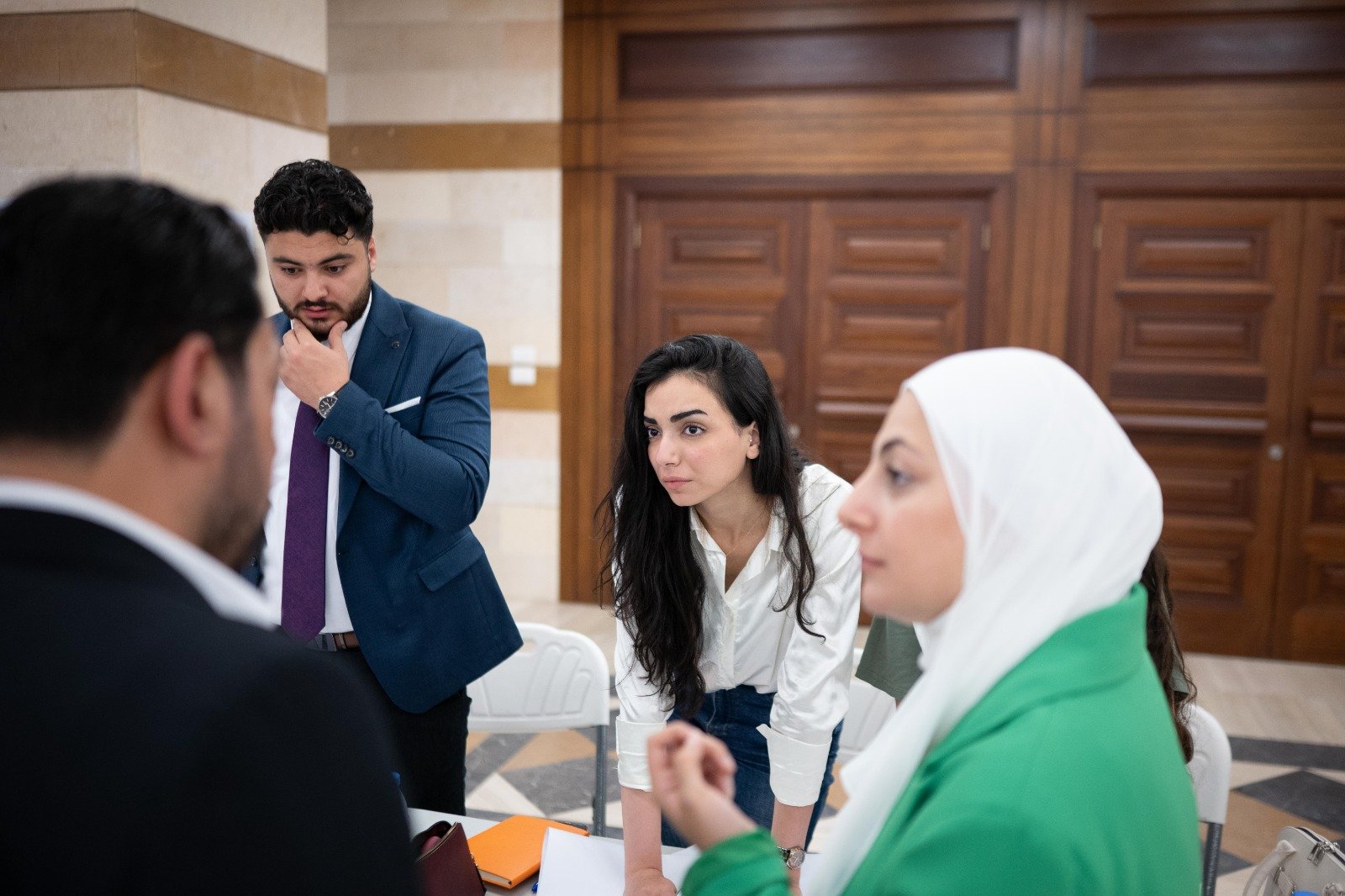
As part of iHOPE's ongoing adovcacy campaign to spread awareness in Lebanon, this website stands as a national campaign for awareness on International Parental Child Abduction. Welcome to our platform that aims to connect left-behind parents with experienced attorneys, and encourage the Lebanese Government to sign the 1980 Hague Convention on the Civil Aspectsof International Child Abduction through collective community influence. This initiative has been funded by the US Embassy in Beirut.
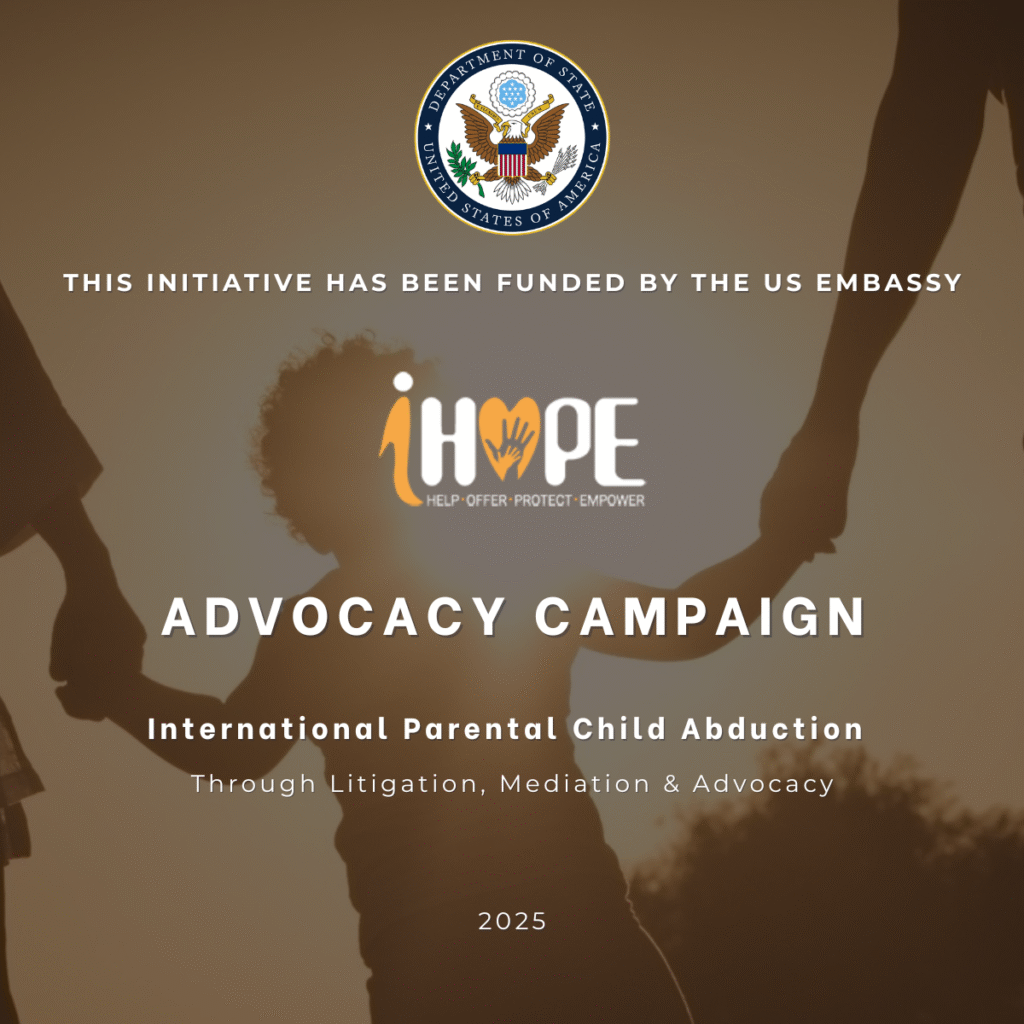

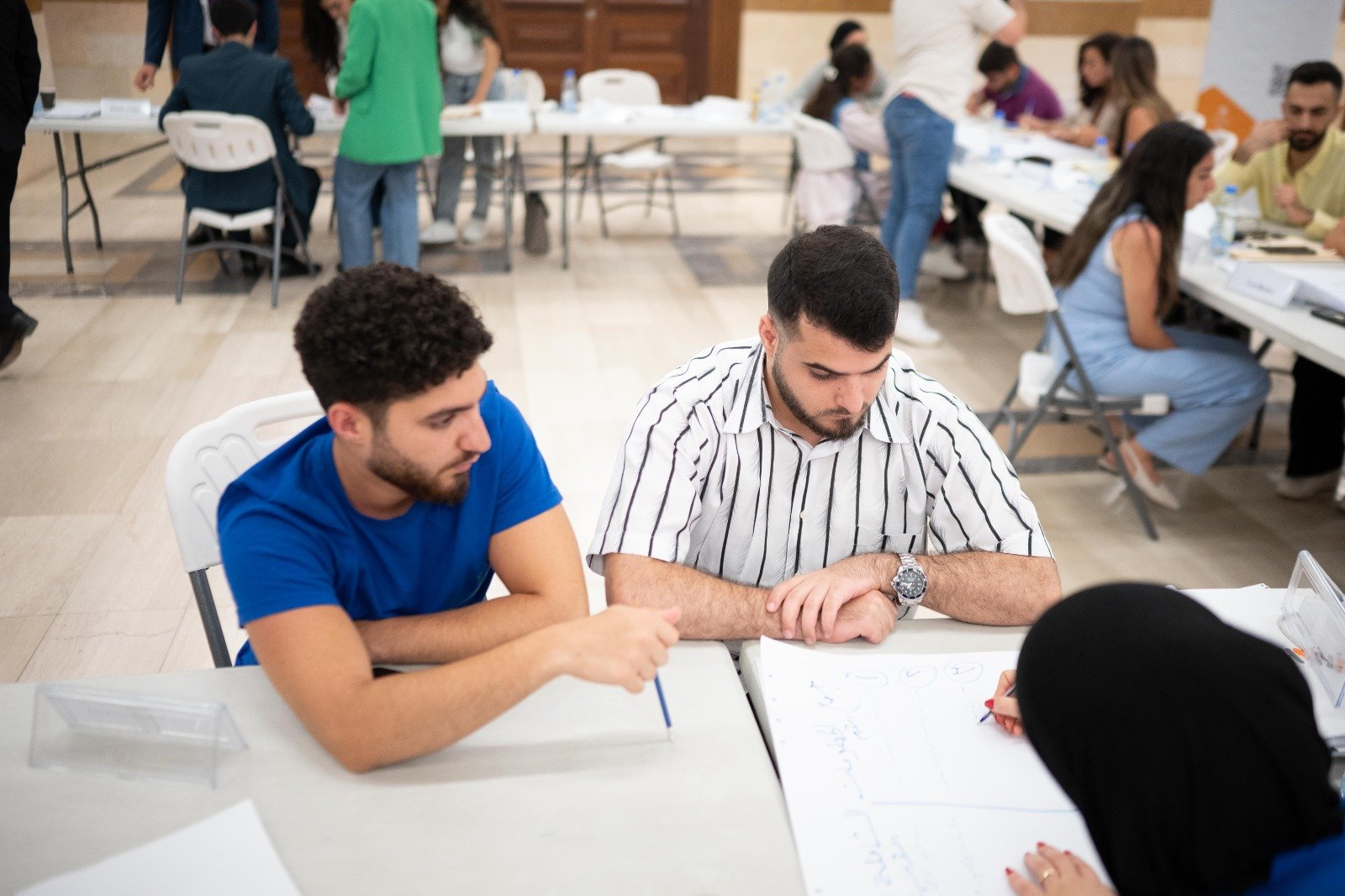
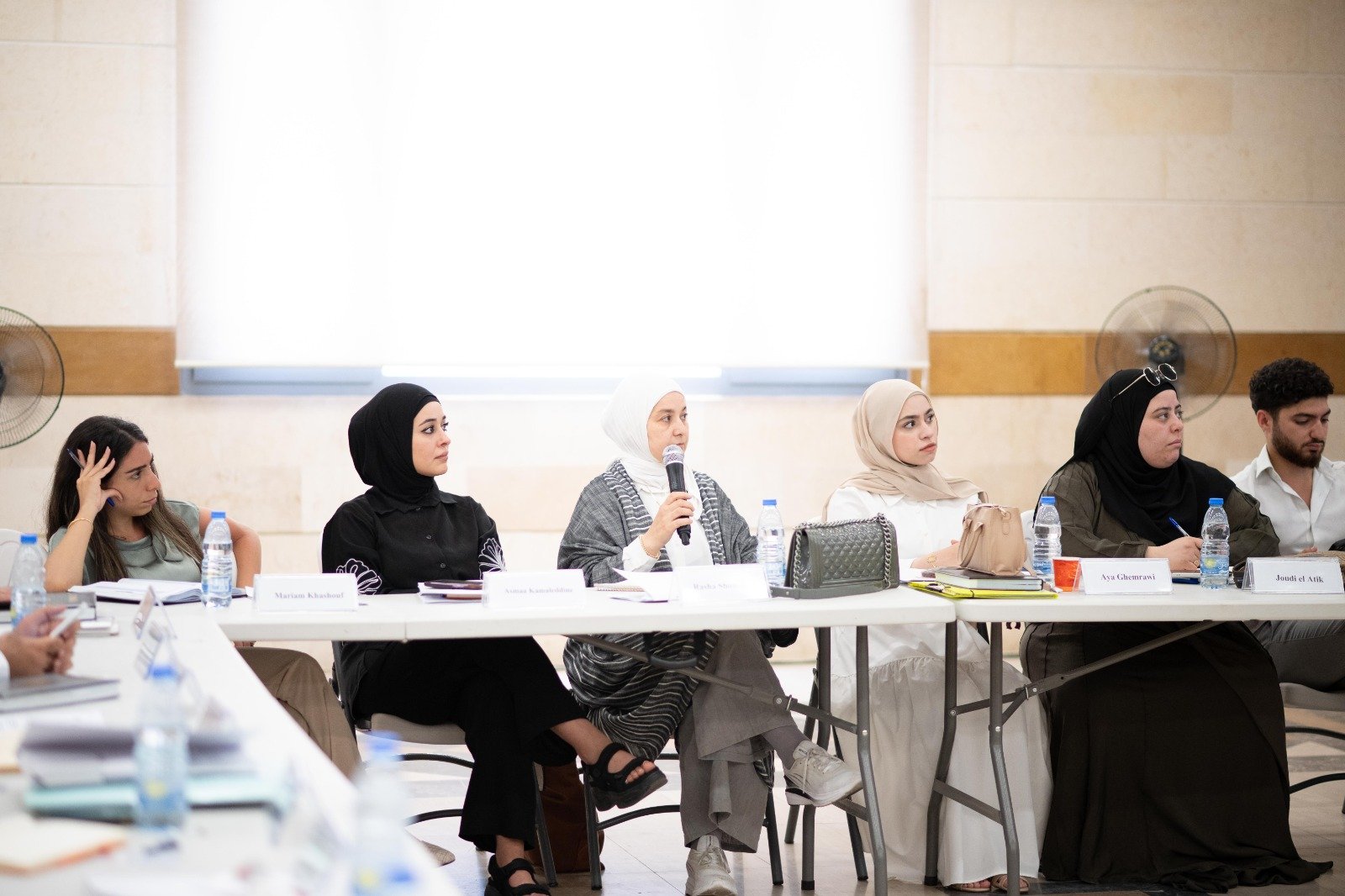
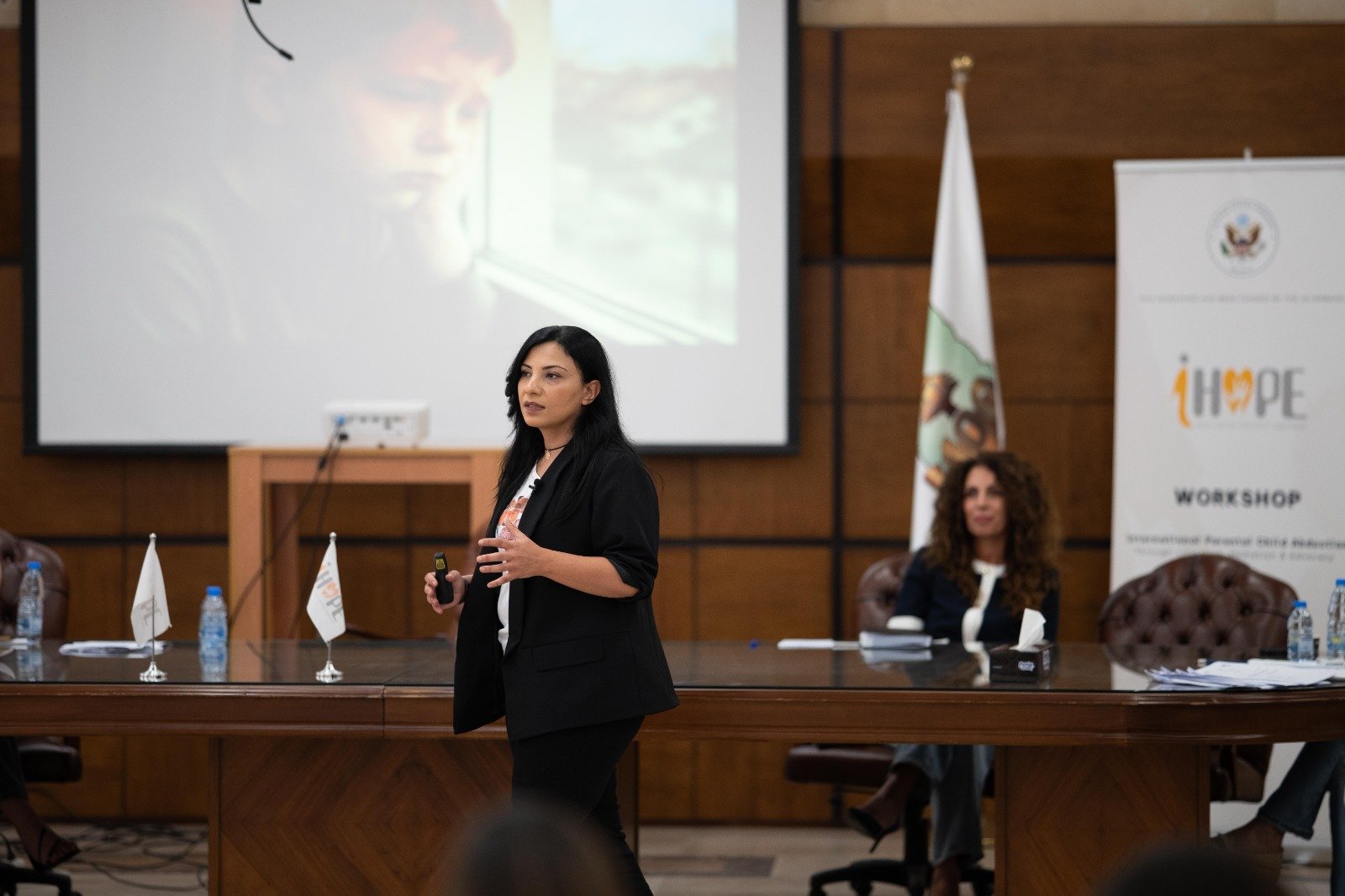
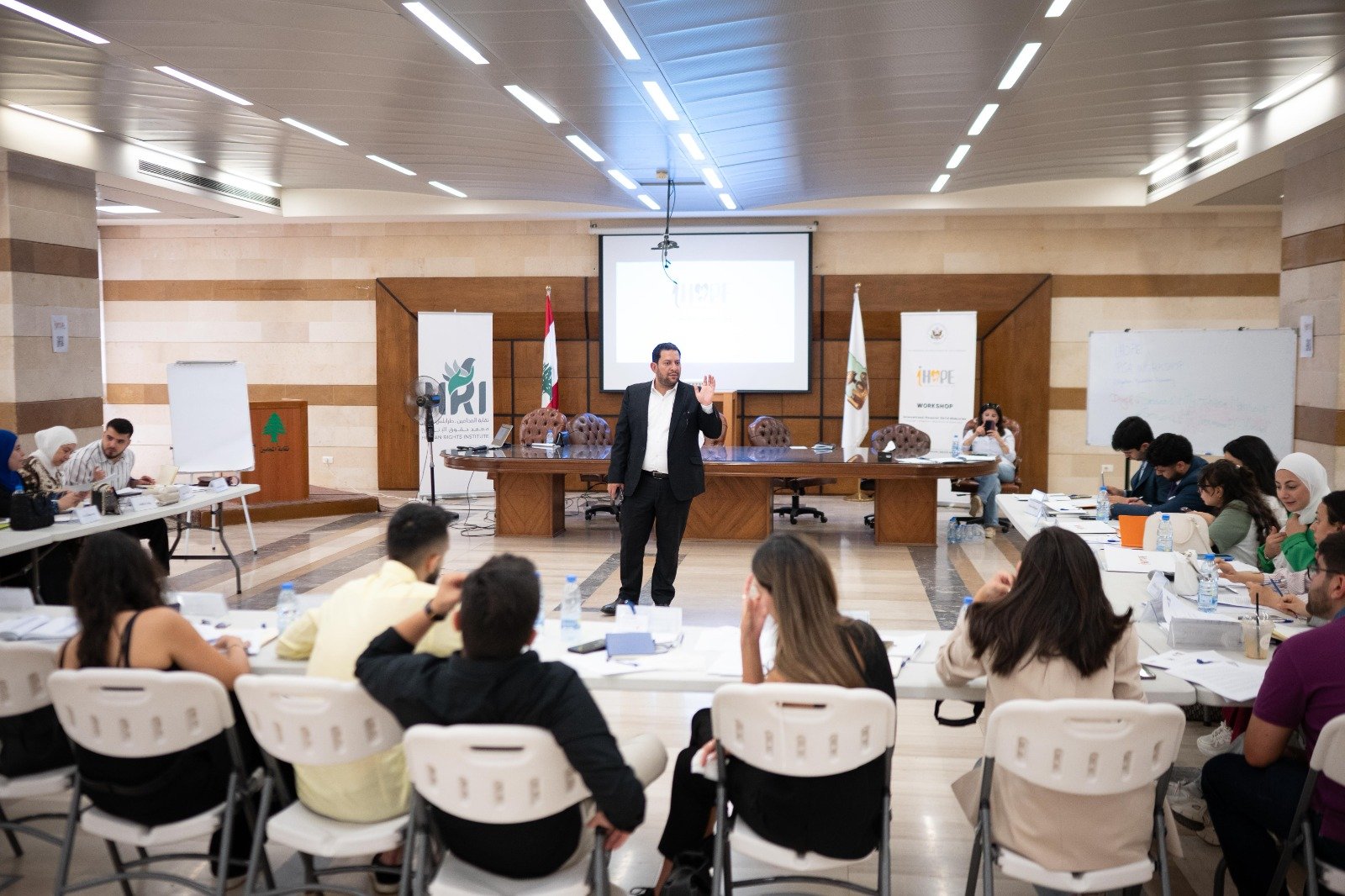
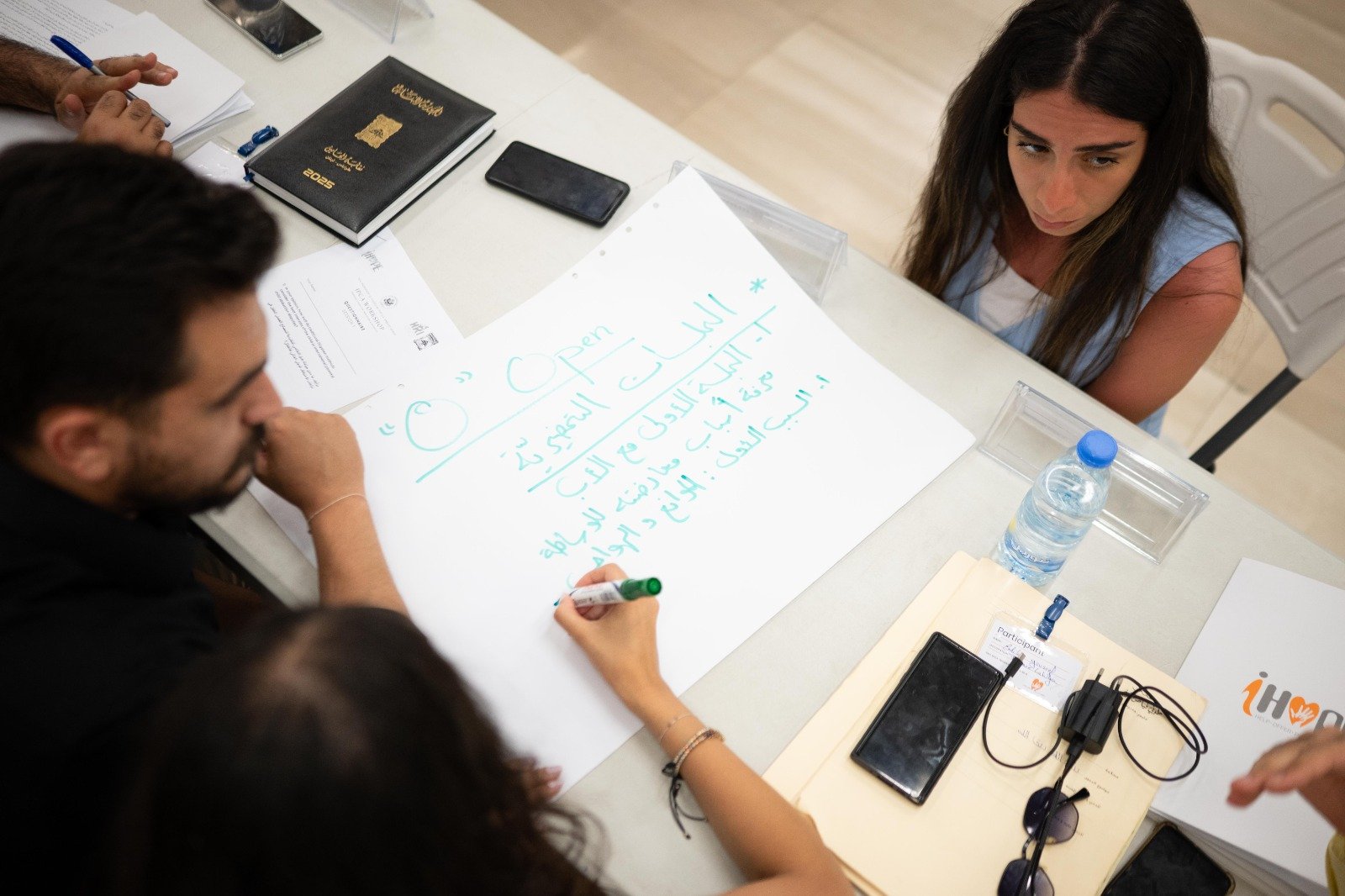



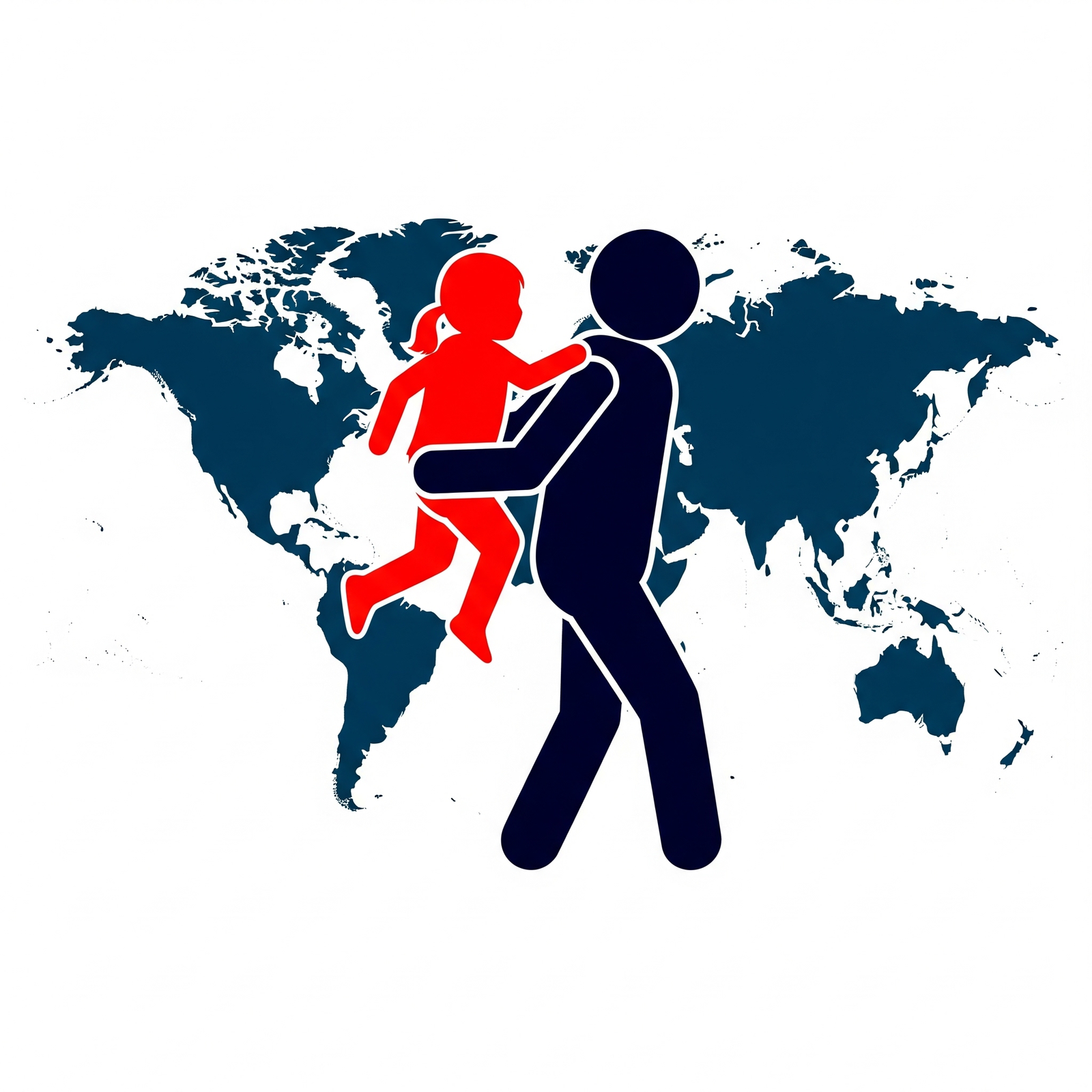
The 1980 Hague Convention defines international parental child abduction in Article 3 as the act of one parent wrongfully removing or retaining a child outside their country of habitual residence, in violation of the other parent's legally recognized custody rights.In Lebanon, parental child abduction is not considered a crime.
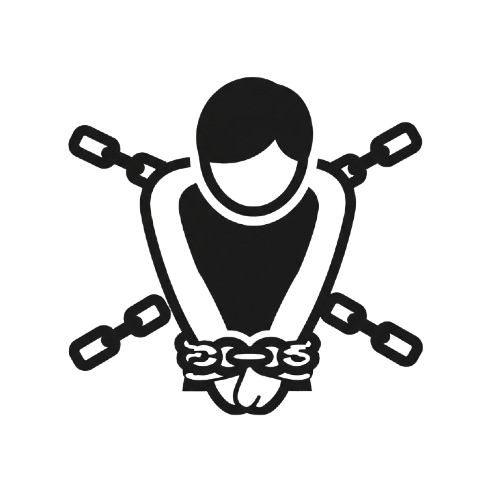
Although Lebanon has signed the Convention on the Rights of the Child and the Universal Declaration of Human Rights, the fragmented local legal framework continues to violate these principles.
Parental child abduction breaches the child’s right not to be separated from their parents against their will—except when it is in their best interest.
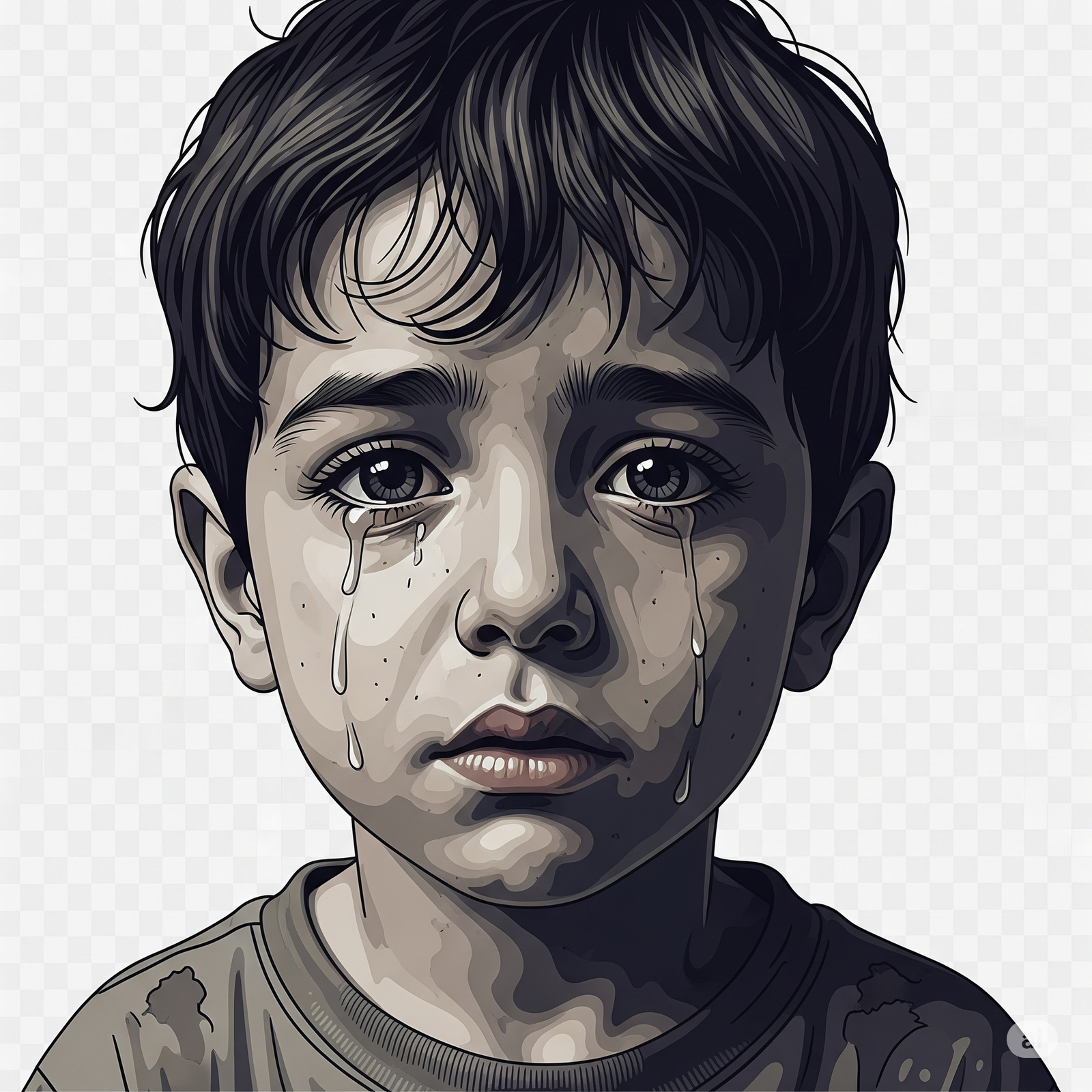
Although it is possible to enforce foreign judgments in Lebanon, the process is complex and requires review by the Court of Appeal and the issuance of an executory order.
Requirements include authentication, translation, payment of fees, and notification of the other party—making the process lengthy and costly.
About international parental child abduction and the legal situation in Lebanon.
About international parental child abduction and the legal situation in Lebanon.
Article 3 of the 1980 Hague Convention considers the removal or retention of a child unlawful if it occurs in violation of custody rights granted under the law of the state where the child habitually resided before removal or retention, provided these rights were actually exercised at the time of removal or retention. This definition focuses on “habitual residence” and “custody rights” as core concepts.
Non-accession of most Arab countries to the Convention is due to several complex factors. Most notably, differences between custody and guardianship concepts in Islamic jurisprudence and the “custody rights” concept in the Convention, and concerns about national sovereignty and foreign interference in personal status matters. Differences in interpreting “the child’s best interest” and lack of legal awareness and political will also contribute to non-accession.
Lebanon is not a signatory to the 1980 Hague Convention, creating a legal vacuum. The legal system is complicated due to sectarian plurality, where different personal status laws govern each sect. Legally, parental abduction is not a crime under Lebanese Laws, and so any parent who abducts a child to/from Lebanon in breach of a custody right, is not legally considered an abductor. Most cases of international parental child abduction are resolved as ordinary custody disputes.
Lebanese law application faces major challenges including sectarian legal plurality leading to conflicting judgments and lack of recognition of foreign judgments, prolonging disputes. Additionally, absence of rapid procedures and difficulty in judgment enforcement, potential bias in some sectarian courts, lack of judicial expertise, absence of international coordination, and high litigation costs all hinder effective resolution of these cases.
Despite Lebanon’s non-accession to the Hague Convention, one can resort to litigation before Religious Courts or Civil Courts to take rapid preventive measures. It’s also possible to benefit from bilateral memoranda of understanding with other countries, cooperate with diplomatic authorities, and explore amicable solutions in specific cases.
When dealing with international parental child abduction to non-Hague countries, where no specific treaty mechanism exists for return, alternative dispute resolution (ADR) becomes a crucial path. Parents can engage in methods like mediation, facilitated by impartial third parties, to negotiate directly with the abducting parent and reach a voluntary agreement regarding the child’s return or access.
If you believe a child has been illegally abducted by a parent, you should immediately report the abduction to:
1- Your Embassy. Check your embassy’s website for emergency contact information.
2- Reach out to us and we will deploy an attorney to assist in your case.
3- The Internal Security Forces (ISF). They are the primary law enforcement agency.
4- General Security (G.S.) which is responsible for border control, passports, and residency. If the child’s travel documents are involved, or if you suspect they might attempt to leave or enter the country, G.S. would be a crucial agency to contact after reporting to the ISF.
Emergency Numbers:
Internal Security Forces (ISF) – Police:
• Emergency Number: 112 (This is the primary emergency number for police services across Lebanon.)
• Headquarters (General Enquiries): +961 1 422000 or +961 1 425250
• Information Department (Free Hotline): 1788
General Security (General Directorate of General Security – G.S.):
• Emergency/Information Hotline: 1717 (This is a dedicated call center for inquiries and assistance related to General Security services, including residency, passports, and border control.)
• Central Direction (Adliyeh): +961 1 386610 or +961 1 425610
iHOPE Experienced IPCA Attorney
• Emergency Number: +961 70 759 777 – +961 3 060 682
• Email: info@ihope.world
The international community establishes crucial legal frameworks like the Hague Abduction Convention to facilitate the return of abducted children and recognize custody orders globally, while also fostering cooperation through central authorities for communication and information exchange. They engage in diplomatic efforts, especially in non-Hague countries, to negotiate returns and champion parental rights, alongside promoting alternative dispute resolution to amicably resolve these sensitive cases. Additionally, the international community builds capacity by training professionals, raises global awareness to prevent abductions, and provides essential support services and resources to affected families.
To prevent abductions, an informed community educated on warning signs and healthy co-parenting can recognize risks and offer crucial emotional, psychosocial, and practical support to left-behind parents. Community members also contribute through vigilance and information sharing, acting as extra eyes and ears to report suspicious activities and spread local awareness if a child is abducted. Furthermore, communities actively collaborate with law enforcement and NGOs to enhance prevention strategies and mobilize resources for affected families.
iHOPE stands as a pioneer in addressing international parental child abduction in the Middle East, offering specialized legal support to affected families through strategic litigation. We uniquely apply the “HOPE” methodology for mediation, prioritizing cultural considerations to achieve effective resolutions. Through extensive awareness campaigns, professional training programs, policy-driving research, and strategic international partnerships, iHOPE provides comprehensive solutions for this critical issue.

"My child was abducted three years ago, and every day that passes is indescribable torment. The legal system in Lebanon is very complex and does not protect mothers' rights. I appeal to every person who believes in children's rights to stand with us to end this humanitarian tragedy in our country."
We call on the Lebanese government to immediately join the 1980 Hague Convention on Civil Aspects of International Child Abduction. This will provide a binding international legal mechanism to protect Lebanese children and foreign residents in Lebanon and ensure their swift return to their habitual environment.
We demand radical reform of the fragmented sectarian system and unification of custody and access laws under a unified legal framework that aligns with international standards for children's rights, giving utmost priority to the "child's best interest" principle and ensuring equality in custody rights between parents.
At iHOPE, we recognize the vital role our community plays in protecting children from international parental child abduction. We urge you to join us in raising awareness, supporting affected families, and fostering a vigilant environment to ensure every child’s safety and well-being. Together, we can build a strong, informed network to prevent abductions and aid in the safe return of children.
Reuniting Families, One Child At A Time..
A comprehensive national advocacy campaign, launched by iHOPE with support from the US Embassy in Beirut, dedicated to advocating against IPCA to and from Lebanon, preserving the rights of victims, spreading awareness to the local community, and creating a support network for left-behind parents. Together we can make all the difference.
Legal Advocacy in Lebanon
Specialized Mediation
Free Legal Consultations
Training and Development for Specialists
Psychological Support for Families
Research and Studies on Lebanese Situation
1980 Hague Convention
Convention on the Rights of the Child
Universal Declaration of Human Rights
Human Rights Watch Report on Lebanon
Lebanese Child Protection Law 293
Lebanese Personal Status Laws
© 2025 Created with Ihope.world